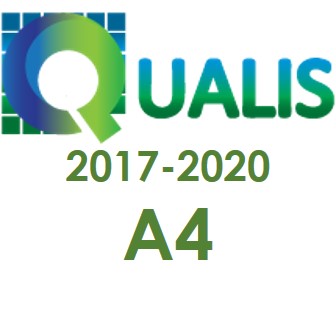The variation between the forms of past imperfect tense and future of past tense to express counterfactual events in Portuguese: a sociofunctionalist study
DOI:
https://doi.org/10.22481/el.v19i4.9281Keywords:
variação linguística, sociofuncionalismo, futuro do pretérito, pretérito imperfeito, língua portuguesaAbstract
This paper discusses the variation between the forms of the past imperfect and the future of past in conditional constructions of a counterfactual nature, based on the speech data of the Portuguese of Fortaleza, collected by Torres (2009). The theoretical framework presupposes the dialogue between Variationist Sociolinguistics and Linguistic Functionalism, under the configuration of Sociofunctionalism, according to Tavares (2003), Gorski; Tavares (2013), May (2009); Amorim; Sousa, (2019), among others. The data were submitted to the Goldvarb-X statistical program and analyzed from the following groups of extralinguistic factors (age, education and sex) and linguistic factors (structural complexity, order, types of verb, polarity, information flow and modality). Statistical analysis reveals that structural complexity, modality and sex are conditioning factors in the process of variation between the past imperfect and the future of past in the syntactic-semantic context of counterfactual conditionality.
Downloads
References
AMORIM, V. R. S.; SOUSA, V. V. Convergências e Divergências Epistemológicas no Hibridismo entre a Sociolinguística e o Funcionalismo. Id on Line Rev.Mult. Psic., vol.13, n.44, 2019.
BARBOSA, T. A. M. A variação entre futuro do pretérito e pretérito imperfeito do indicativo em orações condicionais iniciadas por “SE” na fala uberlandense. Dissertação (Mestrado em Linguística) – Universidade Federal de Uberlândia, Uberlândia, 2005.
BRITO, N. J. A. A expressão do condicionado contrafactual em construções se p, então q no português brasileiro. 2014. 113 f. Dissertação (Mestrado em Linguística Aplicada; Literatura Comparada) - Universidade Federal do Rio Grande do Norte, Natal, 2014.
_____. Alternância entre futuro do pretérito e pretérito imperfeito do indicativo no domínio funcional da condição contrafactual em comentários no facebook. 2018. 132f. Tese (Doutorado em Estudos da Linguagem) - Centro de Ciências Humanas, Letras e Artes, Universidade Federal do Rio Grande do Norte, Natal, 2018.
BECHARA, E. Moderna Gramática Portuguesa. 37 ed. revista e amp. Rio de Janeiro, Lucerna, 2003.
BORBA, F. da S. Uma gramática de valências para o português. São Paulo: Ática, 1996.
BUBLITZ, W. Transferred negation and modality. Journal fo Pragmatics. V.18, 1992.
Chafe, W. L. Givenness, contrastiveness, definiteness, subjects, and point of view. In: Li, C. (ed.). Subject ant Topic. New York. Academic Press, 1976, p. 25-55.
CORACINI, M. J. Um fazer persuasivo: o discurso subjetivo da ciência. São Paulo: Pontes - Educ, 1991.
CUNHA, Celso; CINTRA, Luís Filipe Lindley. Nova Gramática do português Contemporâneo. 7 ed. Rio de Janeiro, Lexicon, 2017.
DIAS, F. M. P de C. Variação e funcionalidade modo-temporal no português oral de fortaleza/ce: futuro do pretérito versus pretérito imperfeito na codificação da eventualidade em construções condicionais. (2007). Dissertação (Mestrado em Linguística). Programa de Pós-graduação em Linguística, Universidade Federal do Ceará, Fortaleza.
_____. A multifuncionalidade do futuro do pretérito nos séculos XVIII, XIX e XX: uma análise (socio)funcionalistaem revistas históricas do Instituto do Ceará. (2012) Tese (Doutorado em Linguística). Programa de Pós-graduação em Linguística, Universidade Federal do Ceará, Fortaleza.
DUBOIS, J. Competing Motivations. In: HAIMAN, John (org.). Typological Studies in Language. Amsterdam: John Benjamins Publishing Company, 1984. (p. 229-240).
GIVÓN, T. Markeness in Grammar: distributional, communicative and cognitive correlates of syntactic structure. Technical Report, Nº 90/8, University of Oregon, 1990.
_____. Functionalism and grammar: a prospectus. University of Oregon, 1991a.
_____. Isomorphism in the Grammatical Code: cognitive and biological considerations. Studies in language. 1992.
GÖRSKI, E. M.; COELHO, I. L. Variação linguística e ensino de gramática.Work. pap. linguíst., v. 10, n. 1, p. 73-91, Florianópolis, jan. jun., 2009.
HALLIDAY, M. A. K. An Introduction to functional grammar. London: Edward Arnold Publishers, 1985.
_____. Spoken and written language. Oxford: University Press, 1989.
_____. An introduction to functional Grammar. 3. Ed. London: Hodder Education, 2004.
LABOV, W. Padrões sociolingüísticos. Tradução de M. Bagno; M. M. P. Scherre; C. R. Cardoso. São Paulo: Parábola Editorial, 2008 [1972].
MAY, G. H. Discutindo o papel do funcional no sociofuncionalismo. Work. pap. linguíst., v. 10, n. 2, Florianópolis, 2009.
MENEZES, L. C. Expressões linguísticas modalizadoras deônticas em função argumentativa: um exercício de análise retórico-funcional. 2011. 334f. – Tese (Doutorado) – Universidade Federal do Ceará, Departamento de Letras Vernáculas, Programa de Pós-graduação em Linguística, Fortaleza (CE), 2011.
NARO, A. J. “Modelos quantitativos e tratamento estatístico”. In: Mollica (org.), Introdução à Sociolinguística Variacionista. Rio de Janeiro, UFRJ, 1992.
NEVES, M. H. M. Estudos funcionalistas no Brasil. D.E.L.T.A., São Paulo, v.15, n. esp., p. 71-104. 1999.
_____ . Texto e Gramática. São Paulo: Contexto, 2006.
OLIVEIRA, F. A. de L. A alternância entre o futuro do pretérito e o pretérito imperfeito do indicativo na oração principal em contextos hipotéticos na fala de alagoanos. 2010. 128 f. Dissertação (Mestrado em Linguística; Literatura Brasileira) - Universidade Federal de Alagoas, Maceió, 2010.
PAIVA, M. C. A variável gênero/sexo. In: MOLLICA, M. C.; BRAGA, M. L. Introdução à Sociolinguística: o tratamento da variação. São Paulo: Contexto, 2007.
PIRES DE OLIVEIRA, R. Uma história de delimitações teóricas: 30 anos de semântica no Brasil. D.E.L.T.A., vol. 15, n. especial, 1999.
SANKOFF, D.; TAGLIAMONTE, S.; SMITH, E. Goldvarb X: a variable rule application for Macintosh and Windows. Department of Linguistics, University of Toronto/Department of Mathematics, University of Ottawa, 2005.
SILVA, C. R.; OLIVEIRA, M. J. Variação/mudança numa perspectiva sociofuncionalista. Miguilim – Revista Eletrônica do Netlli, Crato, v. 6, n. 2, p. 243-264, maio-ago. 2017.
TAVARES, M. A. A gramaticalização de E, AÍ, DAÍ, e ENTÃO: estratificação e mudança no domínio funcional da sequenciação retroativo-propulsoradeinformações – um estudo sociofuncionalista. 2003. Tese (Doutorado em Linguística) Curso de Pós-graduaçãoem Linguística, Universidade Federal deSanta Catarina, Florianópolis.
____. Sociofuncionalismo: um duplo olhar sobre a variação e a mudança linguística. Edição especial Abralin/SE. Itabaiana, Ano VIII, v.17, jan./jun. 2013.
____; GÖRSKI, E. M. reflexões teórico-metodológicas a respeito de uma interface sociofuncionalista. Natal RN, revista do GELNE, v. 15, número especial, 2013.
TORRES, F. F. O gerúndio na expressão de tempo futuro: um estudo sociofuncionalista. 2009 Dissertação (Mestrado em Linguística) - Programa de Pós-graduação em Linguística, Universidade Federal Ceará, Fortaleza.
Downloads
Published
How to Cite
Issue
Section
License
Copyright (c) 2021 Language Studies

This work is licensed under a Creative Commons Attribution 4.0 International License.

Estudos da Língua(gem) is licensed under a Creative Commons Attribution 4.0 International License.
Authors who publish in the journal Estudos da Língua (gem) agree with the following terms:
The journal Estudos de Língua(gem) maintains the copyrights of the contributions published. These rights include the publication of the contribution and make its content available for free through the portal.












